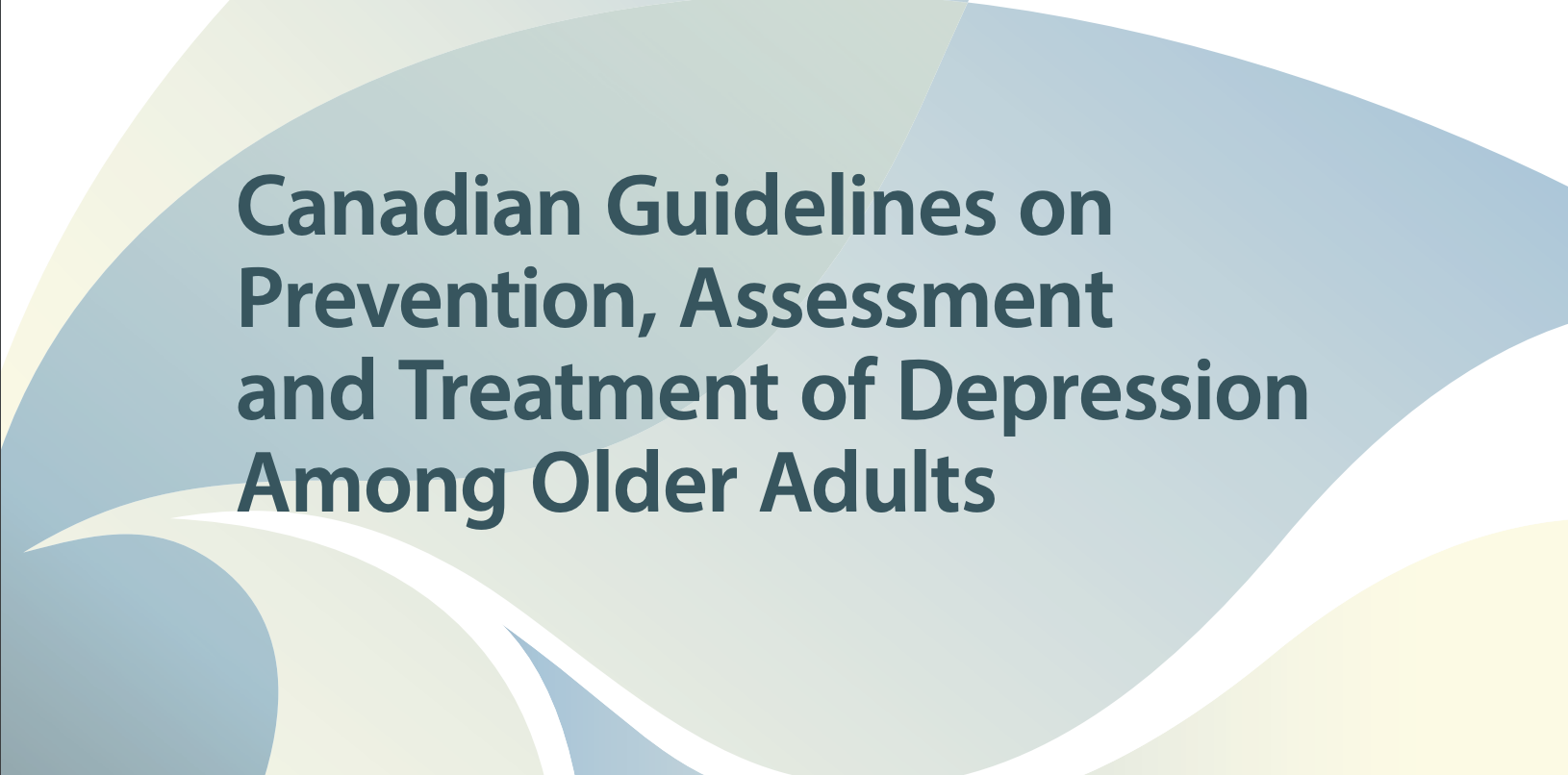Updated Canadian Guidelines on the Prevention, Assessment and Treatment of Depression among Older Adults

Depression is one of the leading causes of disease burden especially in middle and higher income countries and is a major contributor to healthcare costs. Depression among older adults is associated with significant suffering and disability, increased mortality and worse outcomes from physical illness. It is also important to note that proportionally more people over the age of 65 die from suicide than any other age group, especially among older men. The COVID-19 pandemic has affected the mental health of all age groups especially older adults where there has been a significant negative impact on the levels of isolation, loneliness and lack of support.
The Canadian Coalition for Seniors Mental Health (CCSMH) published “Guidelines on the assessment and treatment of depression among older adults” in 2006 (CCSMH, 2006; Buchanan et al, 2006). CCSMH has now updated these Guidelines (CCSMH, 2021). The new guidelines update a number of recommendations to align with current evidence. They also now include a number of recommendations focused on preventing depression.
Some highlights of the updated guidelines include:
CCSMH has also developed a brochure titled: Depression in Older Adults: You Are Not Alone, which has been translated in English, French, Punjabi, Traditional Chinese and Simplified Chinese. Depression – Canadian Coalition for Seniors' Mental Health (ccsmh.ca)
Refs: Buchanan, D., Tourigny-Rivard, M-F., Cappeliez, P. et al. (2006) National Guidelines for Seniors’ Mental Health: The Assessment and Treatment of Depression. Canadian Journal of Geriatrics 9: S52-58. Canadian Coalition for Seniors Mental Health (CCSMH). National Guidelines for Seniors’ Mental Health: The Assessment and Treatment of Depression. 2006 Canadian Coalition for Seniors Mental Health (CCSMH). Canadian Guidelines on the Prevention, Assessment and Treatment of Depression among Older Adults. 2021
-
By
Canadian Coalition for Seniors' Mental Health (CCSMH)
-
Published
Jun 16, 2021
-
Subject Area
- Health & Wellness - Cognitive & Mental
-
Audience
- Service Providers (Non-profits, Community Organizations, Local government)
- Government
- Caregivers, Seniors & Volunteers
- Academics
-
Category
Newsletter
Sign up for the Healthy Aging CORE BC e-news to keep up-to-date with activity from the platform and the Community-Based Seniors Services (CBSS) sector across the country.
